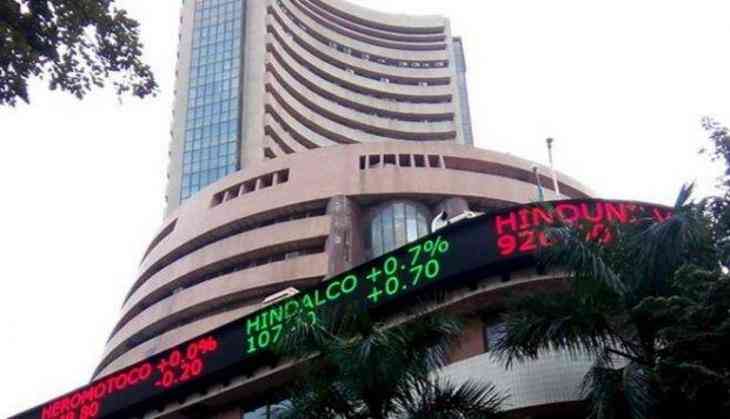
The Indian stock market's key indices, Sensex and Nifty, which had crashed by more than 2 per cent in the early morning trade, recouped the losses partly with benchmark Sensex trading 756 points down in the afternoon session.
The 30 stock S&P BSE Sensex was trading 736.95 points or 1.25 per cent down at 58,096.92 points at 1.47 pm against its previous session's close at 58,833.87 points.
In the pre-open session, the Sensex crashed by over 1,400 points. The Sensex started the day sharply down at 57,367.47 points. This is the lowest level for the benchmark Sensex in the intra-day.
The broader Nifty 50 of the National Stock Exchange was trading 189.55 points or 1.08 per cent down at 17,369.35 points.
The Nifty started the day at 17,188.65 points and crashed to a low of 17,166.20 points in the intra-day.
IT stocks crashed amid negative cues from the global markets. The Nifty IT sectoral index was down 3.5 per cent.
Tech Mahindra tumbled 4.23 per cent to Rs 1039.75. Infosys dipped 3.94 per cent to Rs 1461.95. HCL Technologies crashed 2.95 per cent to Rs 917.90. Wipro was down 2.92 per cent. The country's largest IT firm Tata Consultancy Services tumbled 2.78 per cent.
Kotak Bank, Tata Steel, State Bank of India, Axis Bank, ICICI Bank and Power Grid Corporation were among the major Sensex losers.
Stock markets crashed across the world after US Federal Reserve chair Jerome Powell signalled aggressive rate hikes.
Powell said in a speech to the central banking conference in Jackson Hole, Wyoming that the US economy will need tight monetary policy "for some time" before inflation is under control.
The Federal Open Market Committee's (FOMC) focus right now is to bring inflation back down to 2 per cent target.
"Reducing inflation is likely to require a sustained period of below-trend growth. Moreover, there will very likely be some softening of labor market conditions. While higher interest rates, slower growth, and softer labor market conditions will bring down inflation, they will also bring some pain to households and businesses," Powell said at the conference.
"These are the unfortunate costs of reducing inflation. But a failure to restore price stability would mean far greater pain," Powell added.
In the backdrop of an over four-decade high inflation, the US Federal Open Market Committee in late July raised its key policy interest rate by 75 basis points to 2.25-2.50 per cent, anticipating that the increase in the interest rates will be "appropriate".
(ANI)
Also Read: Rupee hits record low, breaches 80 to a US dollar again


